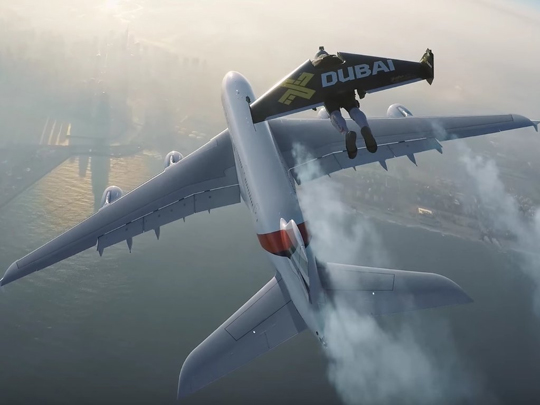May 11: Saudi Arabia will triple its value-added tax rate and suspend a cost of living allowance for state workers, it said on Monday, seeking to shield finances hit by low oil prices and a slump in demand for its lifeline export worsened by the new coronavirus.
Historic oil output cuts agreed by Riyadh and other major producers have given only limited support to prices after they sank on oversupply caused by a war for petroleum market share between the kingdom and its fellow oil titan Russia.
Saudi Arabia, the world's largest oil exporter, is also being hit hard by measures to fight the new coronavirus, which are likely to curb the pace and scale of economic reforms launched by Crown Prince Mohammed bin Salman.
"The cost of living allowance will be suspended as of June 1, and the value added tax will be increased to 15% from 5% as of July 1," Finance Minister Mohammed al-Jadaan said in a statement reported by the state news agency. "These measures are painful but necessary to maintain financial and economic stability over the medium to long term...and to overcome the unprecedented coronavirus crisis with the least damage possible."
The austerity measures come after the kingdom posted a $9 billion budget deficit in the first quarter.
The minister said non-oil revenues were affected by the suspension and decline in economic activity, while spending had risen due to unplanned strains on the healthcare sector and the initiatives taken to support the economy.
"All these challenges have cut state revenues, pressured public finances to a level that is hard to deal with going forward without affecting the overall economy in the medium to long term, which requires more spending cuts and measures to support non-oil revenues stability," he added.
The government has cancelled and put on hold some operating and capital expenditures for some government agencies, and cut allocations for some reform initiatives and projects worth a total 100 billion riyals ($26.6 billion), the statement said.
Central bank foreign reserves fell in March at their fastest rate in at least 20 years and to their lowest since 2011, while oil revenues in the first three months of the year fell 24% from a year earlier to $34 billion, pulling total revenues down 22%.
"The reforms are positive from a fiscal side as greater adjustment is essential. However, the tripling of VAT is unlikely to help that much in 2020 revenue wise with the expected fall in consumption," said Monica Malik, chief economist at Abu Dhabi Commercial Bank.
She said she kept unchanged her deficit forecast of 16.3% of GDP for this year, which already factors in a greater than previously announced spending cut.
About 1.5 million Saudis are employed in the government sector, according to official figures released in December.
In 2018, Saudi Arabia's King Salman ordered a monthly payment of 1,000 riyals ($267) to every state employee to compensate them for the rising living costs after the government hiked domestic gas prices and introduced value-added tax.
DIFFICULT TIMES
A committee has been formed to study all financial benefits paid to public sector employees and contractors, and will submit recommendations within 30 days, the statement said.
In late 2015, when oil prices fell from record highs, the kingdom slashed lavish bonuses, overtime payments and other benefits once considered routine perks in the public sector.
In a country without elections and with political legitimacy resting partly on distribution of oil revenue, the ability of citizens to adapt to such reforms is crucial for stability.
"Tripling the VAT will test the limits of the balance between revenues and consumption as the economy dives into a deep recession. The move will impact consumption and could also lower the expected revenues," said John Sfakianakis, a Gulf expert at the University of Cambridge.
"These are pro-austerity and pro-revenue moves rather than pro-growth ones," he said.
Hasnain Malik, head of equity strategy at Tellimer, said the VAT rise could bring about $24-$26.5 billion in additional non-oil fiscal revenue. The rise would hit consumer spending further but was a needed step towards fiscal sustainability, he said.







Comments
It's actually a cool and useful piece of info. I am glad
that you shared this helpful info with us. Please stay us informed like this.
Thanks for sharing.
My homepage :: best digital baby
grand piano: http://www.120qiaoxing.com/comment/html/index.php?page=1&id=202
I do not even know how I stopped up here, but I assumed this post used to be great.
I do not realize who you are however definitely you are going
to a well-known blogger for those who aren't already.
Cheers!
Here is my page :: best entry level digital piano: http://owencollier.com/index.php/component/k2/itemlist/user/1120707
Hi! This post couldn't be written any better! Reading this
post reminds me of my old room mate! He always kept talking about this.
I will forward this write-up to him. Fairly certain he will have a good read.
Thanks for sharing!
Look at my website - Yamaha digital pianos
reviews: http://empresasmondejar.com/?option=com_k2&view=itemlist&task=user&id=7…
This is really attention-grabbing, You are a very
skilled blogger. I have joined your feed and sit up for in the hunt for
extra of your fantastic post. Additionally, I've shared your site in my social networks
Check out my site: best digital
piano Weighted keys: http://jiaozhanji.net/comment/html/index.php?page=1&id=18177
Hi to every body, it's my first go to see of
this web site; this web site contains remarkable and truly excellent material designed for readers.
Visit my web blog ... which keyboard: http://hldtxx.gznsjy.net/comment/html/index.php?page=1&id=11860
It's very straightforward to find out any topic on web as compared to
textbooks, as I found this article at this web page.
Here is my web site: what is digital piano (Larae: http://www.diluya.cn/comment/html/index.php?page=1&id=89918)
Hello to every body, it's my first go to see of this web site; this weblog contains amazing
and actually good material designed for visitors.
my homepage: digital piano reviews 2014: http://www.ys12345.com/comment/html/index.php?page=1&id=34993
Add new comment